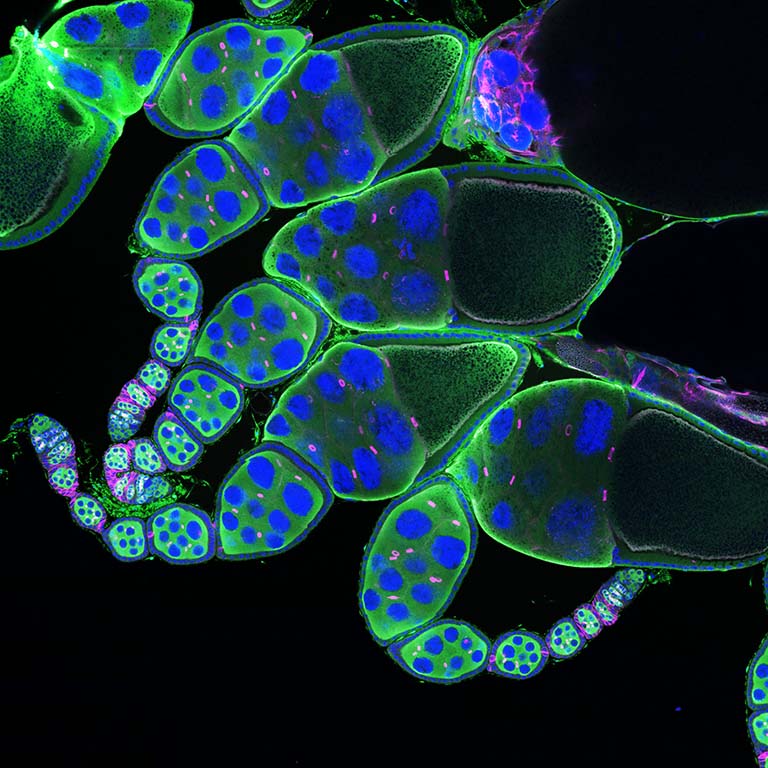Throughout an organism's lifetime, its stem cells generate a variety of specialized cells with specific functions (e.g., blood cells, bone cells, brain cells). Correct organ-to-organ communication and maintenance of tissue stem cells provide proper tissue and organ function upon which an organism's survival depends. Learning more about how stem cells respond to changes in physiology is key to developing new medical treatments to regenerate and repair tissues that have been damaged or affected by disease.
Lesley Weaver, an assistant professor in the College of Arts and Sciences' Department of Biology at Indiana University Bloomington, is studying how inter-organ communication maintains tissue behavior. She and her lab members seek new insight into how disruption of organ communication might lead to tissue abnormalities in many organisms, including humans.
Weaver's research has been funded $1.25 million through a Maximizing Investigators' Research Award for Early Stage Investigators (R35). The MIRA, as the award is known, is presented by the National Institute of General Medical Sciences (NIGMS), a section of the National Institutes of Health. It provides support for an investigator's research that falls within the mission of NIGMS. The MIRA provides researchers with greater stability and flexibility which in turn enhances scientific productivity and the chances for important breakthroughs. The award is for five years.


 The College of Arts
The College of Arts